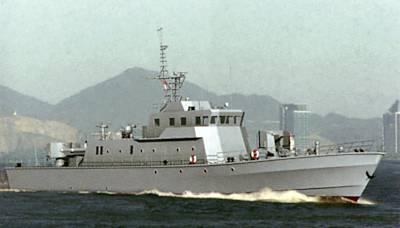WASHINGTON, Jan. 12, 2011 — Building a strong U.S.-China relationship is important from a national security strategy perspective, the chairman of the Joint Chiefs of Staff said today.
At a Foreign Press Center briefing here, Navy Adm. Mike Mullen said his thoughts on China, which he called “an emerging global influence,” have gone through cycles over time.
“I know they have their own challenges, and … the Chinese have every right to develop the military that they want, as the United States does,” he said. “We develop our capability to protect our interest.”
Defense Secretary Robert M. Gates is visiting China, Japan and South Korea this week, and several foreign correspondents questioned the chairman today about U.S. views on China’s military.
“I think his visit enhances the [military-to-military] relationship,” Mullen said. “From an overall strategic point of view, I have long … been a believer in the strength of the relationship of these two countries.”
Chinese President Hu Jintao is scheduled to visit the United States this month, Mullen noted. “We look forward to that visit,” he said. “We expect it to be a very positive visit. It doesn’t mean we don’t have challenges. It doesn’t mean we don’t need to address some very difficult issues. We do.”
One of those issues is China’s role in maintaining stability on the Korean peninsula, where in recent months North Korean acts of aggression have heightened security concerns for South Korea, Japan and the United States as well as China, Mullen said.
“My message in the region … is this is an evolving threat, not just to the region but to the United States specifically,” he said. The international community must bring as much pressure as it can to deter North Korean provocations, said he added.
“One of the reasons it’s so important … to come together on this — Russia, China, Japan, South Korea and others – is that the capability [North Korean leader Kim Jong-il] is developing is becoming more and more dangerous,” he said.
While the United States and China need not agree on everything, Mullen said, it’s important they foster a relationship in which they can address such issues. The two nations’ “economic engines” share some interdependence, he noted.
China clearly has achieved a global reach, in great part based on its economic impact, Mullen told the group.
“Tied to prosperity, there needs to be security. They go hand-in-hand,” he said. “And so having a strong security relationship is equally important to having a strong economic relationship. I think that’s the relationship we are, certainly, working toward.”
It’s critical for the two nations to renew their military relationship, Mullen said, because “there’s a great deal, quite frankly, that we don’t understand about each other.”
The demonstration flight this week of the Chinese J‑20 fifth-generation stealth fighter “did not come as a surprise to me,” Mullen said.
“China is investing in very high-end, high-tech capabilities,” he said. “The question that is always out there is to try to understand exactly why. The opaqueness of that, tied to our lack of relationship, is something I’d like to see if we can crack open.”
Many Chinese capabilities, including stealth aircraft and anti-satellite and anti-ship weapons, “seem to be focused very specifically on the United States,” the chairman said. “So that’s why having this relationship is so important,” he added.
The chairman drew a laugh with his answer to a question about Chinese cyber attacks on his Facebook or your Gmail accounts. “I haven’t seen any on my Facebook account,” he said.
But the question is pertinent, he said, “because it’s an area that has received great focus on the part of the United States and other countries.”
“It’s an area of warfare – cyber warfare – that I think needs to be one on which we focus greatly,” he added, noting that cyber warfare has “devastating potential on the down side.”
“We’ve made a lot of changes inside the Department of Defense [and] inside our government, and we are working toward a very robust system here,” he said, adding that the cyber threat from China and other sources is “significant.”
“I think we’ve got to come to a place where, again, those threats are diminished, if not eliminated,” the chairman said.
Mullen said he’s been around long enough to know threats can’t be wished away, and cyberspace and space are areas “with no rules,” where attacks happen at the speed of light, launched by state and nonstate actors.
“It’s an enormously complex and critical area that all of us need to understand a lot better and do a lot more about,” he said.
Source:
U.S. Department of Defense
Office of the Assistant Secretary of Defense (Public Affairs)

 von
von 

